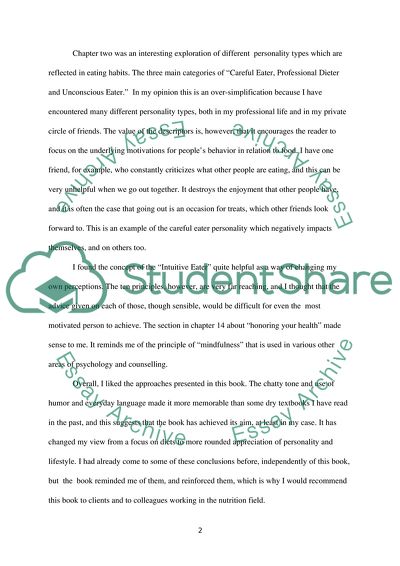Intuitive Eating Essay Example | Topics and Well Written Essays - 500 words. https://studentshare.org/health-sciences-medicine/1605341-intuitive-eating
Intuitive Eating Essay Example | Topics and Well Written Essays - 500 Words. https://studentshare.org/health-sciences-medicine/1605341-intuitive-eating.


